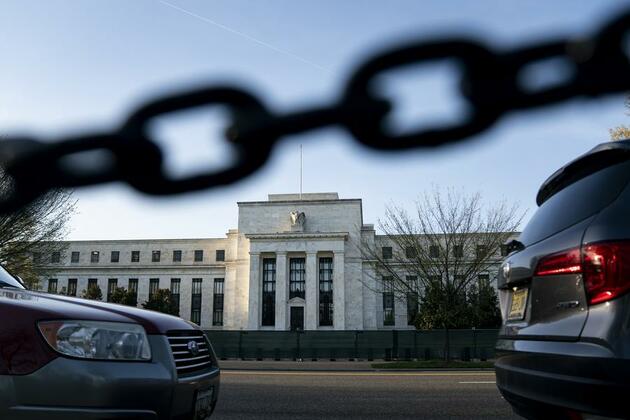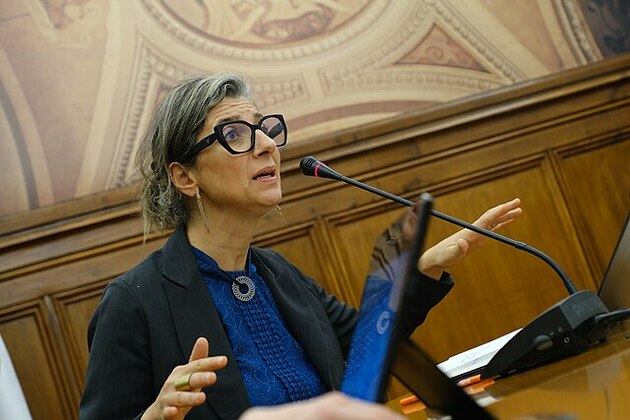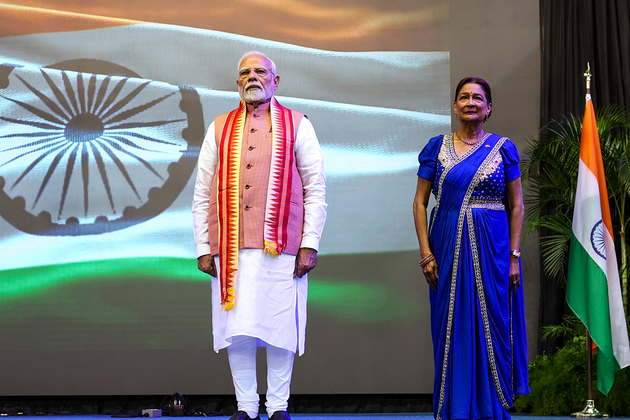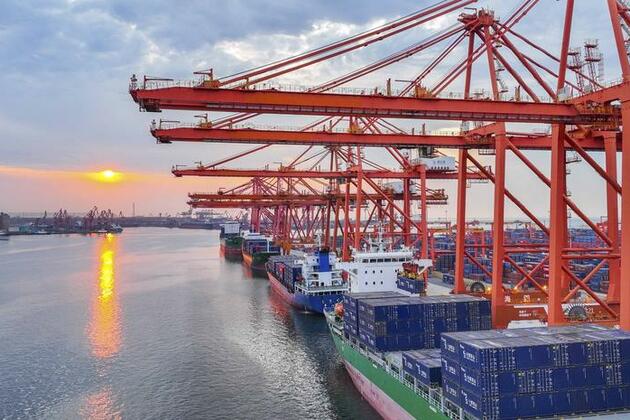Column: Toward a multi-polar international monetary system
Xinhua
05 Jul 2025, 15:45 GMT+10

In the long term, developing a multi-polar international monetary order will contribute to a more stable and equitable global financial system.
by Maya Majueran
A multi-polar international monetary system envisions a global financial architecture in which multiple currencies, rather than a single dominant one such as the U.S. dollar, are widely used for international trade, finance, and as reserve assets. This model fosters a multi-currency ecosystem, enabling more balanced economic distribution across regions.
The U.S. dollar has served as the world's primary reserve currency since the 1944 Bretton Woods Agreement, which pegged other currencies to the dollar, and the dollar to gold. Even after the United States abandoned the gold standard in 1971, the dollar retained its dominant role bolstered by the sheer size and stability of the U.S. economy.
The dollar's dominance has persisted largely because no viable alternative has emerged. It continues to account for approximately 58 percent of global foreign exchange reserves, more than 80 percent of global trade finance, 48 percent of SWIFT transactions, and 66 percent of international debt issuance. No other currency matches the dollar's reach across all these dimensions.
However, the dollar's dominance is slowly eroding. Its share of global foreign exchange reserves has fallen from 65 percent a decade ago to around 58 percent today. Similarly, foreign ownership of U.S. Treasury securities has dropped sharply from 50 percent in 2014 to about one-third today.
Multiple forces are driving this transition. Emerging markets are diversifying their reserve portfolios. Bilateral trade in local currencies is gaining momentum. And the weaponization of the dollar particularly through sanctions is prompting the building of parallel financial systems. These shifts are being further accelerated by growing geopolitical tensions and fragmenting trade relationships.
One of the most acute global consequences of dollar dependence is the spillover effect of U.S. monetary policy. When the U.S. Federal Reserve raises interest rates to manage domestic inflation, it tightens financial conditions worldwide. A stronger dollar makes imports more expensive for other countries, especially those that pay for trade in dollars, pushing up inflation globally.
Additionally, many developing countries and corporations borrow heavily in dollars. When the dollar strengthens, debt repayments become more expensive in local currencies, intensifying economic strain.
Higher U.S. interest rates also trigger capital outflows from emerging markets, as investors shift their funds toward higher-yielding U.S. assets. This drains capital from developing economies, weakens their currencies and destabilizes local stock markets.
In response, many countries are pivoting away from dollar dependence. Bilateral trade in local currencies is on the rise, reducing exposure to exchange rate fluctuations. Currency swap agreements where central banks exchange local currencies to settle trade without using the U.S. dollar are becoming increasingly common. Simultaneously, some countries are piloting Central Bank Digital Currencies (CBDCs) for cross-border payments, offering a path to bypass traditional dollar-based systems altogether.
It is envisioned that a multi-polar system would be supported by a diverse group of currencies, including the yuan, the euro, the Indian rupee and others, better reflecting the shifting geopolitical and economic realities. Such a system could enhance global monetary stability, reduce systemic risk, and provide nations with greater autonomy in managing international transactions. It would also dilute the geopolitical leverage that comes with dependence on any single dominant currency.
In the long term, developing a multi-polar international monetary order will help strengthen policy discipline among major currency issuers, bolster systemic resilience, and contribute to a more stable and equitable global financial system.
Editor's note: Maya Majueran currently serves as the director of Belt Road Initiative Sri Lanka, an independent and pioneering organization with strong expertise in Belt and Road Initiative advice and support.
The views expressed in this article are those of the author and do not necessarily reflect the positions of Xinhua News Agency.
 Share
Share
 Tweet
Tweet
 Share
Share
 Flip
Flip
 Email
Email
Watch latest videos
Subscribe and Follow
Get a daily dose of Greek Herald news through our daily email, its complimentary and keeps you fully up to date with world and business news as well.
News RELEASES
Publish news of your business, community or sports group, personnel appointments, major event and more by submitting a news release to Greek Herald.
More InformationInternational Business
SectionOver 60 companies named in UN report on Israel-Gaza conflict
GENEVA, Switzerland: A new United Nations report alleges that dozens of global corporations are profiting from and helping sustain...
Persson family steps up H&M share purchases, sparks buyout talk
LONDON/STOCKHOLM: The Persson family is ramping up its investment in the H&M fashion empire, fueling renewed speculation about a potential...
Shell rejects claim of early merger talks with BP
LONDON, U.K.: British oil giant Shell has denied reports that it is in talks to acquire rival oil company BP. The Wall Street Journal...
Australian PM rejects US pressure to ease biosecurity rules
SYDNEY, Australia: Australia will not ease its strict biosecurity rules during trade talks with the United States, Prime Minister Anthony...
Column: Toward a multi-polar international monetary system
In the long term, developing a multi-polar international monetary order will contribute to a more stable and equitable global financial...
Microsoft shuts down Pakistan office as global firms lose faith in local market
Karachi [Pakistan], July 5 (ANI): Microsoft has officially shut down its office in Pakistan and laid off five employees, marking a...
Mediterranean
SectionTurkey, France battle wildfires amid early Europe heatwave
ISTANBUL/PARIS/BRUSSELS: As searing temperatures blanket much of Europe, wildfires are erupting and evacuation orders are being issued...
Synagogue door set ablaze, Israeli restaurant attacked in latest wave of anti-semitic attacks in Australia
Canberra [Australia], July 5 (ANI): A man set the door of a synagogue alight, and a group of protesters stormed an Israeli restaurant...
India announces to issue OCI cards up to sixth generation of Indian diaspora of Trinidad and Tobago
Port of Spain [Trinidad and Tobago], July 5 (ANI): Prime Minister Narendra Modi during his visit to Trinidad and Tobago announced the...
Trump optimistic about Gaza ceasefire to be inked by next week
Tel Aviv [Israel], July 5 (ANI): US President Donald Trump reiterated his belief that a Gaza ceasefire and hostage release deal could...
India to train 'pundits' from Trinidad and Tobago, see their participation in Geeta Mahotsav
Port of Spain [Trinidad and Tobago], July 5 (ANI): Prime Minister Narendra Modi's historic visit to Trinidad and Tobago gave a fresh...
EU anxiety over Chinese "trade diversion" proves misguided
BEIJING, July 5 (Xinhua) -- The European Union (EU) is once again casting a wary eye eastward, as alarmist claims of a new China shock...












